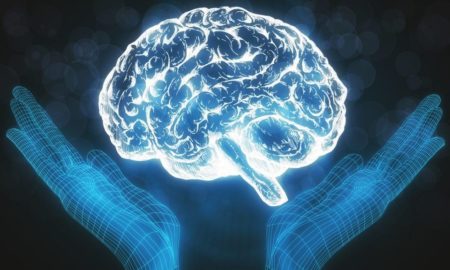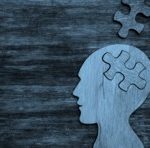
What Role Does Analytics Play in Mental Health Research?
Authored by Ayesha Rajan, Research Analyst at Altheia Predictive Health
Introduction
May is Mental Health Awareness Month, an especially important topic this year as we as a society continue to navigate the coronavirus pandemic. Mental illness is incredibly prevalent in the United States with 1 in 5 adults (43.8 million people) experiencing mental illness and 1 in 25 (9.8 million people) experiencing mental illnesses that limit their ability to live a normal life (Coleman). Furthermore, as people across the country and world currently face the struggles of social isolation and job uncertainty, they report significantly higher incidents of negative mental health effects (Panchal). Clearly, there are a great number of people who would benefit from further developments in mental health research. While the study of analytics as it pertains to mental health is a fairly new field, there are many promising reports and developments that we will discuss here.
When looking at mental health from a data standpoint, there are several approaches to a mental health study. Unlike the monitoring and analysis of conditions like coronary artery disease or diabetes, many current mental health studies focus on factors outside of the metabolic panel such as tracking a patients’ actions, words, facial expressions and non-verbal cues to make predictions about behavior.
While many of the studies detailed here do not look at physical health as a factor in their research, it is important to know that depression and mental illness is more common amongst those with chronic illnesses such as: cancer, coronary artery disease, diabetes, epilepsy, multiple sclerosis, stroke, Alzheimer’s, HIV/AIDS, Parkinson’s, lupus, and rheumatoid arthritis (NIMH).


Research Studies
The Crisis Text Line is a crisis counseling center that receives text messages from people experiencing mental health instability and those who may be considering self-harm or suicide. It then connects them to counselors via text message – a form of communication that can be more comfortable than a phone conversation for many people. Crisis Text Line has collected and analyzed the language patterns over 30 million text messages to analyze trends in those who were more likely to self-harm or commit suicide. What they found was a wealth of key words, such as the word “Advil,” that indicated a person’s risk of committing suicide. Interestingly, none of the key words included those that were previously considered high risk (DDS).
Another fascinating study came out of the University of Southern California where researchers created a virtual therapist called “Ellie.” Ellie captures and analyzes facial expressions and non-verbal cues and uses artificial intelligence to learn to detect the presence of mental illness. In the study, Ellie was more effective than a routine health assessment at detecting Post Traumatic Stress Disorder in military personnel returning from tours in Afghanistan (DDS).
Kaiser Permanente has also conducted research in this area. They successfully built an analytics model that predicts the 90-day suicide risk of patients visiting a mental health professional. The model took in behavioral patterns such as prior suicide attempts, substance use, emergency room incidents and a questionnaire, as well as medical and mental health diagnoses and prescribed medication, as variables for the model. The model was able to identify the top 5% of those with the highest risk of committing suicide. It has created a great foundation for tracking and protecting patients with mental health issues (DDS).
Where Can Analytics Take This Field?
Many mental illnesses are the manifestation of both natured and nurtured inputs. Consequently, the study of data science as it relates to mental health will continue to see a synergy of biological and behavioral inputs that are factored into predictive algorithms as variables. We will likely see more studies take on a biostatistical approach for many of the biological factors related to mental illness including those discussed above. Other factors that show promising abilities to predict and track mental illness include neurobiological mechanisms such as biomarkers from brain imaging, neurocognitive task assessment and psychometrics as they relate to biological aging (Wall). Artificial intelligence can do a lot of the heavy lifting in determining which factors, biological or behavioral, carry the most weight in prediction, prevention, and management. Given the fact that artificial intelligence tools are becoming more and more mainstream, we can likely expect to see many exciting developments in this field.

How You Can Look After Your Mental Health During the Pandemic
The World Health Organization has listed the following items as methods to cope with the stress and anxiety surrounding the COVID-19 pandemic:
- Stay informed by checking the news once or twice a day
- Keep a routine by maintaining your previous routine or creating a new routine
- Maintain a healthy lifestyle be eating healthy meals, exercising regularly, getting enough sleep, and maintaining personal hygiene
- Maintain social contact by checking in on and catching up with friends and family
- Limit screen time in terms of video games and social media
- Limit alcohol and drug use
Making sure that you are checking in with yourself and monitoring your mental health is always important, but it is even more so as we all face the struggles of a pandemic. By taking care of your body and ensuring you have enough time to rest, you can set yourself up to adapt to a trying situation. Additionally, be sure to reach out to love ones and check in on them as well.
Free Tools Available
There are several free tools for mental health available. We have consolidated few resources below to help you navigate to these resources.
Works Cited
“Chronic Illness & Mental Health.” National Institute of Mental Health, U.S. Department of Health and Human Services, www.nimh.nih.gov/health/publications/chronic-illness-mental-health/index.shtml.
Coleman, Madeline. “Mental Health and Big Data: A Step in the Right Direction.” RxDataScience Inc. – Data Science for Healthcare, 6 May 2020, www.rxdatascience.com/blog/mental-health-and-big-data-a-step-in-the-right-direction.
Panchal, Nirmita, et al. “The Implications of COVID-19 for Mental Health and Substance Use.” The Henry J. Kaiser Family Foundation, 21 Apr. 2020, www.kff.org/coronavirus-covid-19/issue-brief/the-implications-of-covid-19-for-mental-health-and-substance-use/.
“Using Data Science to Help Tackle Mental Health Issues.” DiscoverDataScience.org, 16 Mar. 2020, www.discoverdatascience.org/social-good/mental-health/.
Wall, Melanie. “Mental Health Data Science.” Columbia University Department of Psychiatry, 3 Mar. 2020, www.columbiapsychiatry.org/mental-health-data-science.






